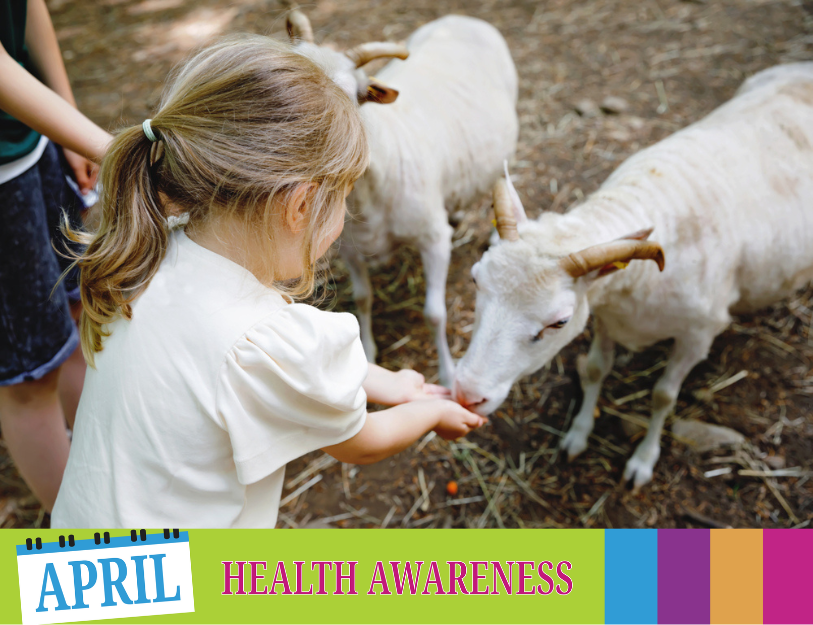
Spring is the season for lambs which means lots of families across Warwickshire are visiting animal farms with their children over weekends and school holidays.
Throughout April, Warwickshire County Council (WCC) is raising awareness of the importance of health, and this includes ways to protect yourself when visiting animal farms and petting zoos.
As children are now on Easter break, farm and petting zoo visits can be an enjoyable activity for families. However, it is also one that carries the risk of infection from animals or the environment. The animals may carry germs that are passed from animal to human, which cause illnesses with symptoms such as diarrhoea, vomiting, fever, nausea, and body aches. People get infected by touching animals in petting and feeding areas, or by coming into contact with animal droppings or contaminated surfaces in the surrounding area to where animals are kept.
These harmful bacteria can get accidentally passed to your mouth by putting hands on faces or fingers in mouths before washing them thoroughly. It only takes a small number of the bacteria to cause infection, and once infected, you can pass the bugs on to other people, who may also become unwell.
Shade Agboola, Director of Public Health at Warwickshire County Council said: “To ensure families stay as safe as possible, we would like to urge anyone planning a day out to a farm to remember the importance of hygiene and frequently washing hands with soap and water – especially before eating and after removing dirty shoes – to avoid getting bugs that could make them seriously ill. Young children should always be supervised when washing their hands as they are more at risk of serious illness.”
Following the simple rules listed below will help to keep you and your children safe from infections that may be found on open farms. Pregnant women need to take particular care as infections from animals can be harmful to them and their unborn baby.
-
Do wash your hands thoroughly with soap and water after you have touched animals, fences or other surfaces in animal areas. All open farms provide handwashing facilities for visitors.
-
Do wash hands thoroughly with soap and water before eating or drinking
-
Do remove and clean boots or shoes that might have become soiled and clean pushchair wheels – then wash hands thoroughly with soap and water
-
Do supervise children closely to ensure that they wash their hands thoroughly – washing your hands should take about 20 seconds – the same time that it takes to recite a single verse of “Old Macdonald Had A Farm”
-
Do eat and drink in picnic areas or cafes only
-
Do not put hands on faces or fingers in mouths while petting animals or walking round the farm
-
Do not kiss farm animals or allow children to put their faces close to animals
-
Do not eat or drink while touching animals or walking round the farm – this includes not eating sweets, crisps or chewing gum
-
Do not eat anything that has fallen on the floor
-
Do not use gels or wipes instead of washing hands with soap and water – gels and wipes do not remove bugs in dirt
If you are planning a school or group visit to a farm, you also need to make sure that you’ve considered all the risks and taken steps to manage them – guidance is available to help schools and teachers do this.
What should I do if I feel unwell after a farm visit?
If you or anyone in your group feels unwell or has any symptoms, for example is sick or has diarrhoea within two weeks of visiting a farm, contact your GP or call NHS 111 as soon as possible. If you or anyone in your group, particularly a young child, has bloody diarrhoea, seek immediate emergency medical attention.
You should not attend school/childcare/work until you have been free of sickness or diarrhoea for two days. If you are diagnosed with Cryptosporidium, you must not go swimming until two weeks after you are free of sickness or diarrhoea as the bugs are resistant to chlorine. Tests may be required to confirm that a child is free from some infections.
Parents should confirm with their health professional whether it is safe for them to return before the child returns to school or nursery.
For more information on staying healthy, visit Health and wellbeing – Warwickshire County Council